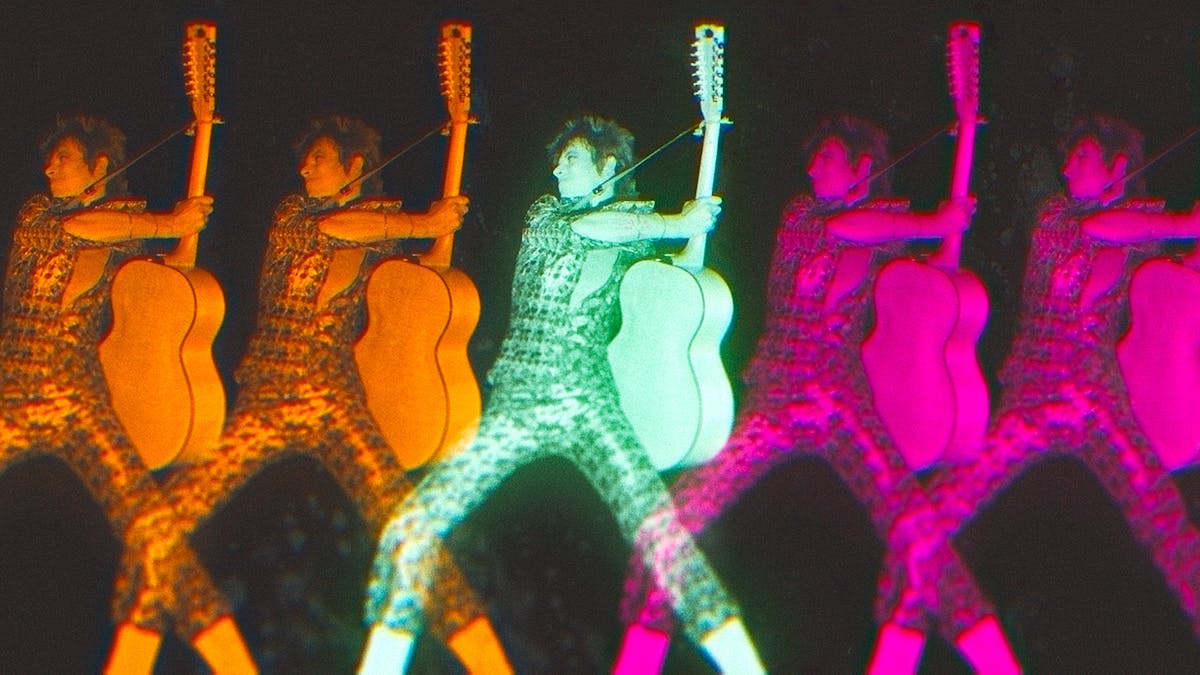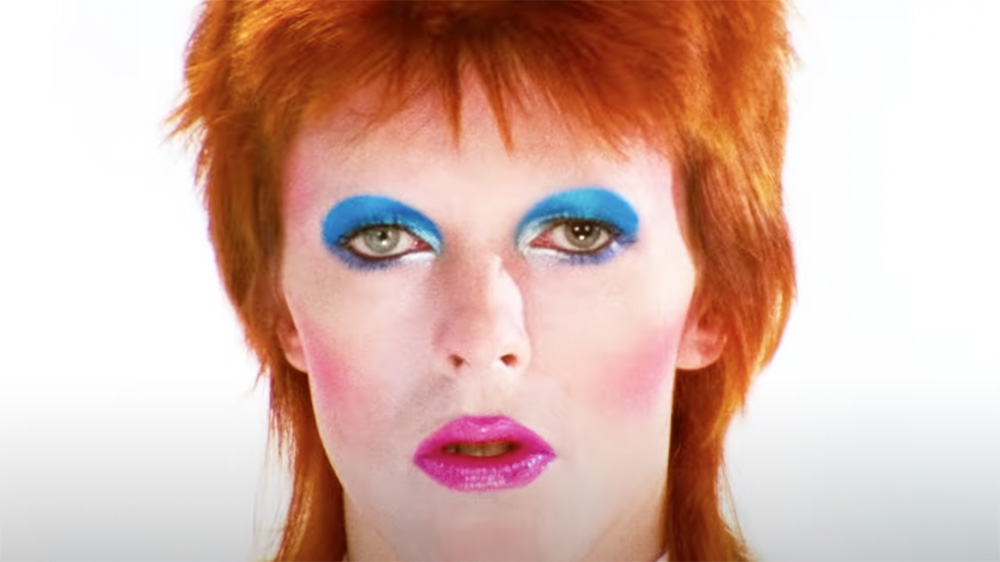Although it’s now considered one of David Bowie’s iconic works, “Heroes” was not a hit when it was first released in October 1977. But Bowie loved the song, which was recorded during the now-legendary sessions with producer Brian Eno at Hansa studio in West Berlin. He always gave it a prominent position in his live shows, even when it sounded out of place during the poppy “Let’s Dance” era. Then, on July 13, 1985, as 1.9 billion people worldwide watched the sun set over Wembley Stadium, Bowie looked out over the Live Aid crowd and dedicated his final song to “My son, and all the children of the world.” That was the moment “Heroes” stopped being a song about the longing of doomed lovers and became something bigger — an anthem of everyday valor, a call to help save an ailing world. “We can be heroes/Just for one day.”
This is not the performance of the song that director Brett Morgan chooses to include in his kaleidoscopic documentary Moonage Daydream. Instead, he goes with a previously unreleased version from the 1978 Isolar II tour, recorded in Bowie’s hometown of Brixton. The band is a little ragged, and Bowie’s normally stoic delivery is tinged with plastic soul. It turns out to be a perfect choice, taking the song off its pedestal and reminding us that it is a thing flawed humans made with their voices and hands.
Don’t go into Moonage Daydream expecting a Behind the Music-style tell-all, with talking-head interviews offering scandalous revelations. Morgan’s film is closer to a fantasia, an impressionistic work of pure montage whose first priority is marrying sound and vision. Bowie’s story is told mostly in his own words. Bowie obsessives (such as myself) will notice many omissions, such as his surgical evisceration of MTV’s Mark Goodman, performed live on air when the VJ tried to defend the network’s racist omission of music videos by Black artists.
Bowie made a sport of talking circles around ill-prepared sensation mongers who had no idea what they were dealing with, such as the contemptuous chat show host who snarls, “Are those bisexual shoes?”
“They’re shoe-shoes,” deadpans Bowie.
The director, who also edited, mines these freak shows for moments when Bowie would casually drop some real insight, such as when he admits that the Berlin sessions, now considered his artistic zenith, almost sank his career. (The exception is writer Mavis Nicholson, whose incisive interview of Bowie on her short-lived BBC show provides Morgan with many of his best quotes.)

Morgan’s decision to let the man speak for himself makes sense because usually the only person who understood what Bowie was doing was Bowie himself. At one point, he plainly states that he designed the Ziggy Stardust persona as an androgynous space god modeled on his study of classical mythology, and it succeeded beyond his wildest dreams because he allowed fans to read more into it than was really there. The director backs up Bowie’s words with images of screaming teenagers in the audience of the final Spiders from Mars show, captured by documentarian D.A. Pennebaker.
The performance footage is Moonage Daydream’s red meat, and Morgan’s choices are as unusual as they are carefully considered. The film’s first crescendo is a volcanic performance of “All the Young Dudes.” Here’s Bowie on harmonica, trading lines with Jeff Beck on a jam-out of “The Jean Genie.” There he is duetting with a young Trent Reznor on Nine Inch Nails’ first tour. He’s on Saturday Night Live, transforming himself into a puppet while Klaus Nomi wails in the background. Where the remixing in Baz Luhrmann’s Elvis betrayed a lack of confidence in the material, longtime Bowie collaborator Tony Visconti’s mixes serve to illuminate the songs. The ’80s rave-up “Modern Love” is introduced via an isolated piano line over scenes of Bowie visiting a Buddhist temple, growing in urgency with each added layer of drum and guitar, before segueing into a show-stopping “Let’s Dance,” where Bowies of every era dance alongside the pompadoured crooner from the Serious Moonlight tour.
If you just want facts, watch the excellent David Bowie: Five Years. Morgan’s ambitions are deeper. He wants to show us what it felt like to be the Starman. Bowie’s collaborators often remarked on his ability to push them to the outer edges of their talent. He seems to have had the same effect on Morgan, who has broken the music documentary and created something new and vital from the pieces. David would approve.
Moonage Daydream
Final IMAX preview Tuesday, September 20, Malco Paradiso Cinema
Opens Friday, Sept. 23
Studio on the Square
